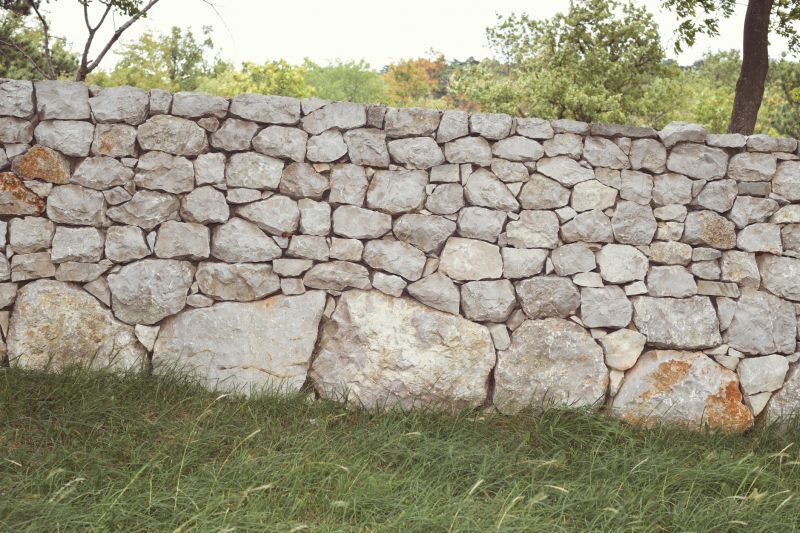Top-Rated Supplies For Efficient Stone Masonry Installations
Equip yourself with the most reliable tools and materials designed to streamline your stone masonry process.
 Stone masonry installations require a careful selection of products to ensure durability, stability, and aesthetic appeal. From foundational materials to finishing touches, the array of tools and supplies available can support both professional masons and DIY enthusiasts. Properly chosen products help facilitate precise cuts, secure bonding, and long-lasting results. Whether constructing a garden wall, a fireplace surround, or a decorative façade, understanding the available options can make the process more efficient and satisfying.
Stone masonry installations require a careful selection of products to ensure durability, stability, and aesthetic appeal. From foundational materials to finishing touches, the array of tools and supplies available can support both professional masons and DIY enthusiasts. Properly chosen products help facilitate precise cuts, secure bonding, and long-lasting results. Whether constructing a garden wall, a fireplace surround, or a decorative façade, understanding the available options can make the process more efficient and satisfying.
Top Overall Option
Multi-purpose Masonry Adhesive and Mortar Mix
This versatile product offers a reliable bonding solution suitable for various stone types and installation conditions. It provides strong adhesion, ease of application, and good workability, making it a preferred choice for both small repairs and larger masonry projects.
Types of Products For Stone Masonry Installations
Masonry Chisels
Tools designed for shaping and splitting stones with precision, available in various sizes and profiles.
Trowels
Essential for applying and spreading mortar or adhesive evenly across surfaces.
Mortar Mixes
Pre-blended or custom-mixed formulations suitable for bonding stones and filling joints.
Stone Sealants
Protective coatings that help prevent water penetration and staining on natural stone surfaces.
Water Repellents
Products designed to reduce moisture absorption and enhance stone longevity.
Grouting Tools
Specialized tools for filling and finishing joints between stones for a seamless look.
Masonry Saws
Power tools for cutting stones accurately to desired sizes and shapes.
Leveling Systems
Devices that assist in achieving even and level stone placements during installation.
Scaffolding
Support structures that provide safe access to higher masonry work areas.
Joint Cleaners
Tools used to remove excess mortar or adhesive from joints for a clean finish.
Safety Gear
Protective equipment such as gloves, goggles, and dust masks to ensure safety during work.
Masonry Mallets
Soft-headed hammers used for tapping stones into place without damage.
Stone Anchors and Fasteners
Hardware used to secure stones or panels in structural or decorative applications.
Joint Fillers
Materials used to fill gaps and joints for stability and appearance.
Polishing Pads
Abrasive pads for smoothing and polishing stone surfaces for a refined look.
Basic tools such as chisels, mallets, and trowels are essential for shaping and placing stones accurately. Adhesives and mortar mixes are critical for bonding stones together securely, with different formulations suited to various types of stone and environmental conditions. Sealants and water repellents protect masonry from moisture infiltration and weathering, extending the lifespan of the installation. Additionally, safety gear like gloves, goggles, and dust masks play a vital role in maintaining safety during the work.
Advanced products like leveling systems, joint cleaners, and specialized saws can enhance precision and ease of installation. For intricate designs or large-scale projects, modular systems and scaffolding may be necessary to reach higher elevations and ensure stability. Selecting the right combination of these products depends on the scope of the project, the type of stone used, and the desired aesthetic. Proper planning and product knowledge contribute significantly to achieving a professional-quality finish that stands the test of time.
Key Buying Considerations
- Compatibility with the type of stone being used to prevent damage or improper bonding.
- Project scale and whether the product is suitable for small repairs or large installations.
- Ease of application and working time, especially for complex or detailed work.
- Environmental conditions such as exposure to moisture, temperature fluctuations, and weathering.
- Durability and long-term performance expectations based on the project’s location.
- Safety features and protective gear required during handling and application.
- Compatibility with other materials like mortar, sealants, and fasteners.
- Ease of cleanup and whether the product allows for adjustments during installation.
- Availability of the product and whether it can be stored or reused for future projects.
- Cost-effectiveness relative to the project scope and quality requirements.
- Manufacturer instructions and recommended usage to ensure proper application.
- Aesthetic considerations, including color matching and finishing options.
- Environmental safety and health standards compliance, if relevant.
- Compatibility with power tools or manual tools planned for use.
- User reviews and feedback for insights into real-world performance.
This page contains affiliate links. We may earn a commission if you make a purchase through these links, at no additional cost to you.
